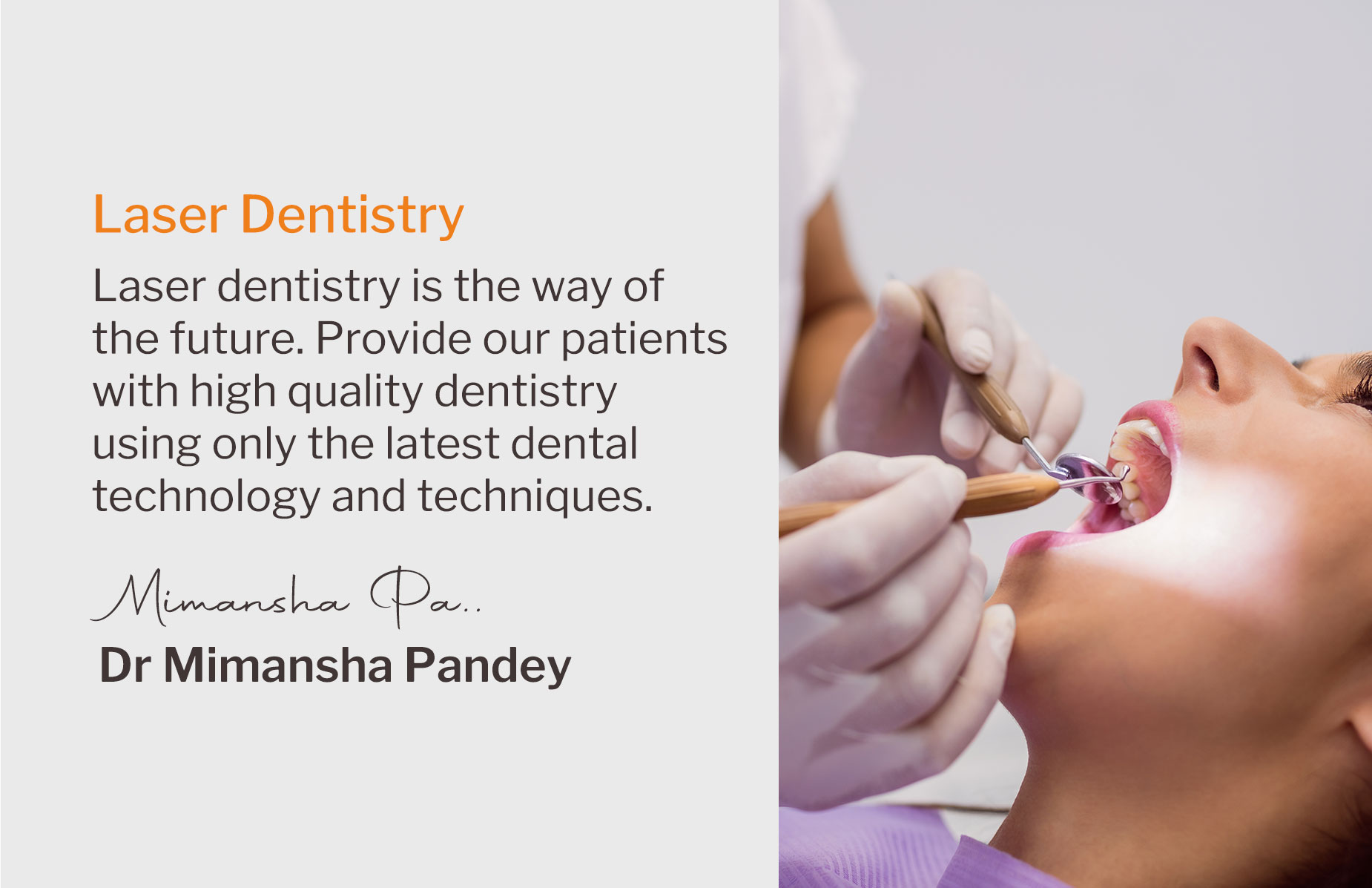Laser dentistry can be used to treat a wide range of oral health conditions, from tooth decay to discoloured teeth.
Lasers can give your dentist greater control during dental procedures. They can help reduce discomfort, shorten treatment times and minimise complications. Laser dentistry treatments may be performed entirely with the help of lasers or they may involve the use of other dental instruments.
What is laser dentistry?
Lasers are a relatively new feature of dentistry. Dental lasers use focused beams of light to remove or reshape tissue during restorative treatments, cure bonding agents and activate bleaching agents during teeth whitening.
Dentists need to complete specific training to become qualified in the use of lasers. Dentists who use laser treatments have a detailed understanding of how the technology works, how to use it safely and how to choose the right lasers and wavelengths for different procedures.
Because your dentist can have precise control over power output and exposure times, laser dentistry can help enhance treatment outcomes. Lasers can help reduce bleeding and swelling, as well as the risk of infections. In some cases, they can help prevent healthy teeth and gum tissue from being affected during the procedure.
Laser treatments can reduce or eliminate the need for dental drills, which may also help you feel more at ease.
What can be treated with laser dentistry?
Many restorative treatments and cosmetic dental procedures now incorporate lasers.
If your dentist offers laser treatments at their dental clinic, they will discuss these options with you during your consultation. They may offer you a choice between laser dentistry or a more conventional approach.
Laser dentistry can be used to treat:
Tooth decay – Lasers can help cut and shape tooth enamel more efficiently than dental drills when preparing a tooth for a filling. Lasers may also be used to help a filling bond to the tooth. or to remove decayed tissue during a root canal treatment.
Gum disease – Diseased or inflamed gum tissue can be cut away with minimal effect on the healthy tissue. Lasers can also help expose teeth roots to remove plaque.
Impacted wisdom teeth – Lasers can help cut away gum tissue to expose wisdom teeth that have only partly erupted or are stuck (impacted) in the gum.
Sensitive teeth – Dental lasers can help seal tubules in tooth roots to reduce the tooth’s sensitivity to hot and cold food and drinks.
Temporomandibular joint disorders (TMD) – Low-level lasers can help reduce pain and inflammation in the temporomandibular joint and surrounding tissues.
Stained or discoloured teeth – Lasers are sometimes used in professional teeth whitening treatments to activate the bleaching agent and speed up the whitening process.
Gummy smile – If you want to alter the appearance of your smile, your dentist may recommend using laser treatment to help reshape your gum line and remove excess gum tissue to show more of your teeth.
Mouth ulcers – If you have a persistent ulcer or lesion in your mouth, lasers may be used to help reduce pain or to remove tissue for a biopsy.
What are the benefits of using laser dentistry?
There are many advantages to using lasers in cosmetic and restorative treatments compared to traditional methods. Your dentist will explain the pros and cons of laser treatments so you can make an informed decision.
Laser dentistry may help avoid anaesthesia or stitches. Additionally, it can help:
- shorten treatment duration and recovery time
- minimise bleeding and swelling during surgery
- reduce scarring of surrounding tissues
- reduce the risk of infections
- guide tissue regeneration
- reduce discomfort and anxiety
- There are some limitations to laser dentistry, though.
For instance, you generally can’t use lasers on teeth with fillings. They also tend to be less effective at large-scale restorative treatments, such as preparing teeth for crowns or bridges.
Laser treatments also tend to be more expensive than standard dental treatments due to the cost of the equipment.
Are there any side effects?
Laser dentistry should be performed by a dental practitioner who is fully qualified to operate the technology and takes appropriate safety precautions, such as providing you with protective eyewear during laser treatments.
Side-effects such as carbonisation, cracking and melting of tooth roots have sometimes been reported with laser use, but these are relatively rare cases.
